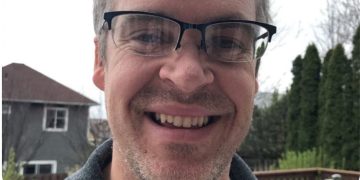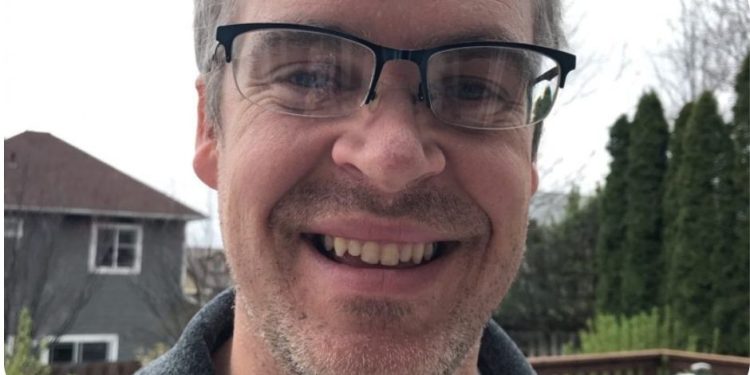For more than a decade, entomologist David Crowder has helped Pacific Northwest farmers sustainably defend against insect pests and invaders.
This winter, Crowder expanded his role as interim director of Washington State University’s Decision Aid System (DAS), an online service that helps U.S. and Canadian fruit growers anticipate and manage pests, diseases, extreme weather, and other challenges.
“Dr. Crowder is a talented scientist and educator who understands the needs and challenges of Northwest agriculture,” said Scot Hulbert, associate dean for research in the WSU College of Agricultural, Human, and Natural Resource Sciences (CAHNRS), said in a news release. “He is a great choice to lead the Decision Aid System as it evolves and expands.”
“Globally, agriculture is increasingly moving into an era of big data and automation,” Crowder said. “In tree fruit industries, more growers and consultants are installing their own weather stations and monitoring networks for pests. With DAS, WSU has pioneered new ways to incorporate site-specific data into useful, predictive models.”
Launched in 2007, DAS uses real-time weather data from WSU’s AgWeatherNet service and other providers, WSU-created crop protection and orchard pest management guides, and other resources to run computer models on common challenges facing the Pacific Northwest tree fruit industry.
Predictions help growers understand when and how to efficiently spray for pests, and forecast when they will need to take action to protect their crops from disorders and diseases.
A collaborative project between WSU Extension and the university’s Agricultural Research Center, DAS is supported by users who get real-time recommendations and smartphone notifications when critical conditions threaten their crops. The system is used on more than 90% of Washington state tree fruit acreage, with an estimated savings to users of nearly $20 million per year.
Prior director Vince Jones stepped down in January after operating DAS since 2013. He plans to retire in March.
A WSU faculty member since 2000, Jones began development of the system that became DAS in 1985, creating many of the models and tools alongside a changing group of collaborators.
“We created the best decision support system in the world,” Jones said. “I’m very proud of it, and excited to see what new directions Dave will take the system.”
“Vince Jones has been the driving force behind DAS,” said Vicki McCracken, Associate Dean and Director of WSU Extension. “It is in large part his creation, and Extension is proud of the strides this advanced system has made during his tenure. I heartily thank him for his two decades of service to the agricultural producers of our region.”
“The team of scientists, Extension specialists, and stakeholders that inform the system’s models have been critical to its success, which also happened through the hard work of Dr. Jones,” added Laura Lavine, Professor and Chair of the WSU Department of Entomology. “Dr. Crowder will not only continue this effort, but build on it.”
Used on most tree fruit acreage in Washington, WSU’s Decision Aid System models help growers predict and manage pollination, as well as challenges from pests, disease, and disorders. The system expands to potatoes in 2021.
Crowder has collaborated with the DAS team for several years, helping build a new potato toolkit. His work, developing strategies to increase sustainability of agricultural ecosystems, meshes with DAS’ mission to deliver unbiased information to decision makers.
Under its new interim director, DAS will grow to include more customizable platforms for users who want to use their own weather and pest monitoring data.
In 2021, the system will also expand into potatoes. Crowder is partnering with the potato industry, growers, and scientists to build user-friendly tools, and the team is exploring the potential to add other crops.
“I am excited to continue to build innovative features into the DAS system, and work with stakeholders to identify ways we can partner with them to address key issues facing the tree fruit and potato industries,” he said. “WSU has strong expertise in digital agriculture, and we hope to continue to play a role in keeping DAS at the forefront of agricultural innovation.






























